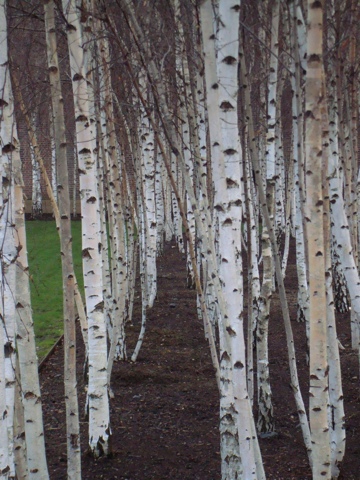I have been reading quite heavily about French politics and art, particularly in the time between the wars, and after world war 2. This is solidifying my desire to visit France. I have wanted to go since I was a small child, but the desire waned slightly in my older years, after visiting amazing German cities such as Berlin, and falling in love with London. Maybe it is time for another new love.
Some 20th century French poems that are speaking to me in reference to Genet's work:
French surrealist Robert Desnos (1900-1945) - I've dreamed such dreams of you
I've dreamed such dreams of you that you're losing
your reality.
Do I still have time to reach your vital body, to kiss
into life that voice I love so much?
I've dreamed such dreams of you that my arms,
across my chest, might not yield to your body's shape.
Faced with the real presence of what's haunted and
guided me all these days and years, doubtless I'd become
a shadow.
Fine balance of feelings!
I've dreamed such dreams of you that the time for
waking must have come and gone. I'm asleep on my feet,
exposed to every image of life and love, and you, the only
thing which counts forme now, any lips, any forehead
will be easier for me to touch than your forehead, your
lips.
I've dreamed such dreams of you, I've walked so
much, talked so much, lain so much with your shadow,
that perhaps now all I can be is a ghost among ghosts, a
hundred times more shadow than the moving shadow
cast and lightly cast again across your life measured by
the sun.
Swiss-born French poet Philippe Jaccottet (1925-) - Serenity
The shadow within the light
like light blue smoke
Belgian-born poet Jean Daive (1941-) I rise from the depths
I rise from the depths of my resemblance
at the very edge of enigma
evening after evening
I have vanished I vanish
blinded resemblance
falls back into cold's fabric
____________________
All taken from:
Sorrell, Martin. Modern French Poetry. London: Forest Books, 1992. P. 63, 105, 227.
Some 20th century French poems that are speaking to me in reference to Genet's work:
French surrealist Robert Desnos (1900-1945) - I've dreamed such dreams of you
I've dreamed such dreams of you that you're losing
your reality.
Do I still have time to reach your vital body, to kiss
into life that voice I love so much?
I've dreamed such dreams of you that my arms,
across my chest, might not yield to your body's shape.
Faced with the real presence of what's haunted and
guided me all these days and years, doubtless I'd become
a shadow.
Fine balance of feelings!
I've dreamed such dreams of you that the time for
waking must have come and gone. I'm asleep on my feet,
exposed to every image of life and love, and you, the only
thing which counts forme now, any lips, any forehead
will be easier for me to touch than your forehead, your
lips.
I've dreamed such dreams of you, I've walked so
much, talked so much, lain so much with your shadow,
that perhaps now all I can be is a ghost among ghosts, a
hundred times more shadow than the moving shadow
cast and lightly cast again across your life measured by
the sun.
Swiss-born French poet Philippe Jaccottet (1925-) - Serenity
The shadow within the light
like light blue smoke
Belgian-born poet Jean Daive (1941-) I rise from the depths
I rise from the depths of my resemblance
at the very edge of enigma
evening after evening
I have vanished I vanish
blinded resemblance
falls back into cold's fabric
____________________
All taken from:
Sorrell, Martin. Modern French Poetry. London: Forest Books, 1992. P. 63, 105, 227.


